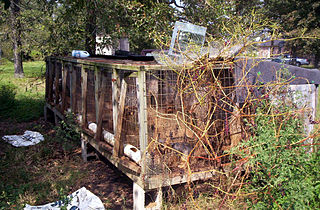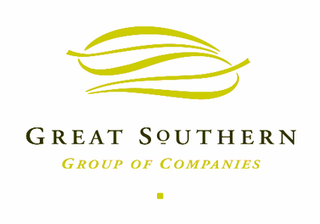
The U.S. Securities and Exchange Commission (SEC) is an independent agency of the United States federal government, created in the aftermath of the Wall Street crash of 1929. Its primary purpose is to enforce laws against market manipulation.

The Sarbanes–Oxley Act of 2002 is a United States federal law that mandates certain practices in financial record keeping and reporting for corporations. The act, Pub. L. 107–204 (text)(PDF), 116 Stat. 745, enacted July 30, 2002, also known as the "Public Company Accounting Reform and Investor Protection Act" and "Corporate and Auditing Accountability, Responsibility, and Transparency Act" and more commonly called Sarbanes–Oxley, SOX or Sarbox, contains eleven sections that place requirements on all U.S. public company boards of directors and management and public accounting firms. A number of provisions of the Act also apply to privately held companies, such as the willful destruction of evidence to impede a federal investigation.

A puppy mill, also known as a puppy farm, is a commercial dog breeding facility characterized by quick breeding and poor conditions. Although no standardized legal definition for "puppy mill" exists, a definition was established in Avenson v. Zegart in 1984 as "a dog breeding operation in which the health of the dogs is disregarded to maintain a low overhead and maximize profits". They are cited as being a result of increased demand for household pets, especially after World War II. The Veterinary Medical Association of the Humane Society of the United States defines the main characteristics of a puppy mill as "emphasis on quantity over quality, indiscriminate breeding, continuous confinement, lack of human contact and environmental enrichment, poor husbandry, and minimal to no veterinary care."

The Commonwealth Scientific and Industrial Research Organisation (CSIRO) is an Australian Government agency that is responsible for scientific research and its commercial and industrial applications.

One.Tel was a group of Australian-based telecommunications companies, principally the publicly-listed One.Tel Limited, established in 1995 soon after deregulation of the Australian telecommunications industry, most of which are currently under external administration by court appointed liquidators.

HIH Insurance was Australia's second-largest insurance company before it was placed into provisional liquidation on 15 March 2001. The demise of HIH is considered to be the largest corporate collapse in Australia's history, with liquidators estimating that HIH's losses totalled up to $5.3 billion. Investigations into the cause of the collapse have led to conviction and imprisonment of a handful of members of HIH management on various charges relating to fraud. A Royal Commission was formed in the wake of the collapse. It also led to the 2002 Review of the Law of Negligence led by David Ipp and subsequent Tort reform.
James Hardie Industries plc is a global building materials company and the largest global manufacturer of fibre cement products. Headquartered in Ireland, it is a dual-listed company, being listed on the Australian and New York Stock Exchanges. Its management team currently sits in Chicago, Illinois, United States. James Hardie was plagued by several asbestos-related scandals in the 20th century.
The Australian Securities and Investments Commission (ASIC) is an independent commission of the Australian Government tasked as the national corporate regulator. ASIC's role is to regulate company and financial services and enforce laws to protect Australian consumers, investors and creditors. ASIC was established on 1 July 1998 following recommendations from the Wallis Inquiry. ASIC's authority and scope are determined by the Australian Securities and Investments Commission Act 2001.
A privately held company is a company whose shares and related rights or obligations are not offered for public subscription or publicly negotiated in their respective listed markets. Instead, the company's stock is offered, owned, traded or exchanged privately, also known as "over-the-counter". Related terms are unlisted organisation, unquoted company and private equity.

Stephen William Vizard is an Australian television and radio presenter, producer, writer, lawyer and businessman. He is an adjunct professor at Monash University and University of Adelaide.
Wayne Mansfield, of Perth, Western Australia, was the head of direct marketing business T3 Direct Marketing, operating under a series of two-dollar companies, and in 2005 became the first Australian to be prosecuted for email spamming.
David Tweed is an Australian businessman who conducts a business of offering to buy securities at either below market value, or at a price that is above market value but via installments. Paying in installments can disadvantage the seller due to the time value of money. Tweed's business practices are controversial in some quarters and his success has attracted criticism from the media and the Australian Securities & Investments Commission. The Federal Government introduced legislation to regulate Tweed's activities.
Firepower International was a fraudulent company that advertised as a Hong Kong-based company owned and operated by Global Fuel Technologies Ltd, specializing in technology purporting to reduce the fuel consumption and environmental impact of petrol-operated vehicles. There were other offices in Sydney, China, Rhodes, Athens and Papua New Guinea, according to the now-defunct official company website. However, "in reality it was a handful of people in an industrial estate in Perth", who were conducting a complex of fraudulent operations. The original entity—Firepower Operations Pty Ltd—was a A$1 company, first registered in December 2004, owned by Firepower Holdings Group Ltd, a company with an address in the British Virgin Islands.

Australian corporations law has historically borrowed heavily from UK company law. Its legal structure now consists of a single, national statute, the Corporations Act 2001. The statute is administered by a single national regulatory authority, the Australian Securities & Investments Commission (ASIC).

Westpac Banking Corporation, also known as Westpac, is an Australian multinational banking and financial services company headquartered at Westpac Place in Sydney, New South Wales.

Great Southern Group was a group of Australian companies that was notable as the country's largest agribusiness managed investment scheme (MIS) business.

Storm Financial Limited was a financial advice company, based in Townsville, Queensland, Australia. The company was founded by Emmanuel Cassimatis and his wife Julie Cassimatis as a private company initially with the name Cassimatis Securities Pty Ltd on 23 May 1994. As part of the company's expansion outside of Townsville the company changed its name from a personality based name to ozdaq Securities Pty Ltd on 10 April 2000. This name remained intact until 1 February 2004 when it was relinquished consequent to trademark objections from the Nasdaq stock exchange in the United States. The company then traded as Storm Financial Pty Ltd from 2 February 2004 until 14 June 2007 at which time the company became an unlisted public company and continued trading as Storm Financial Ltd from 15 June 2007 in preparation for making an initial public offering (IPO) in December 2007. This IPO was subject to a Storm Financial Prospectus which was dated 14 November 2007 and lodged with the Australian Securities & Investments Commission (ASIC) on the same date. Storm Financial Ltd continued to trade until external administrator Worrells Solvency and Forensic Accountants were appointed on 9 January 2009. The main creditor Commonwealth Bank appointed receivers and manager KordaMentha on 15 January 2009.
Great Central Mines was an Australian gold mining company.
Sir Anthony Richard Barrowclough was a lawyer who served as Parliamentary Commissioner for Administration and Health Service Commissioner for England, Scotland and Wales.

The 21st Century Australia Party was an Australian political party formed by Jamie McIntyre. Policies include reviewing the necessity of state government to reduce Australia's political system to two layers rather than three, and reviewing certain taxes.












